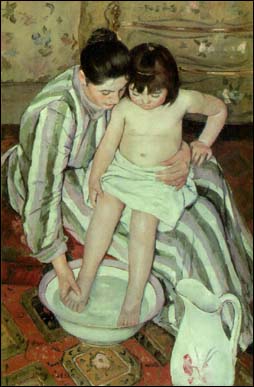Ex Church of Christ support groupHome * Website Purpose * History * UnBiblical Teachings * Spiritual Abuse Jesus' View of God * Faith & Works * New Covenant * The Pattern * Romans 14 |
||
|
_____________________________________________ The believers in God that Jesus preached to were mainly in two camps: First were the Sadducees. The Sadducees believed only in the Scriptures, and believed that there were no angels and no afterlife. Once you died that was it. The only sense of living on after death was in one's nation, legacy, family and traditions. If God was going to bless you for your obedience, He would do it in your own lifetime or the lifetime of your children. This may be one reason why the Sadducees were power people. They controlled the temple and the money-making criminal enterprise they had converted the temple worship into. They were the upper class rulers. Jesus attacked them ferociously, verbally (Matt. 22), politically and physically (John 2). The people responded to Jesus' attacks on the Sadducees, and the Sadducees eventually decided Jesus had to die. (Interestingly, the Sadducees are not heard of after A.D. 70.) Second were the Pharisees. The Pharisees had a much larger following among the working class people. They followed the oral traditions (Mishnah) as well as the Scriptures, and believed angels and demons existed. They also believed in an afterlife--that they would see God after they died. Jesus affirmed these doctrines (Matt. 22). However he hammered the Pharisees for their small view of God, their small view of the commandments, and their elevation of the oral traditions over the Scriptures. The Pharisees had gotten the idea that they were quite holy, that they did not sin very often, and that God was quite impressed with their holiness. The Pharisees also interpreted every interaction with Jesus as a challenge to their honor. They were pride oriented. Their low self-esteem prompted them to puff themselves up. Jesus, in the Sermon on the Mount (Matt. 5-7), challenged the Pharisees to look deeper at the ten commandments and to see that playing legal games with the commandments had nothing to do with being "perfect, as your heavenly Father is perfect" (Matt. 5:48). He said the commandments not to murder and not to commit adultery were issues that started in the heart, and that it made no sense to be fantasizing about taking a shotgun and blowing your co-worker away, while outwardly stepping on the right squares. The Pharisees tried to both cut the commandments down to manageable size, and to draw large lines around sins by banning many things that might lead to sin. (This is similar to banning all alcohol to avoid drunkenness, all dancing to avoid lust, etc.) Jesus swept all their maneuvering away and pointed to God's perfect love. There are many wonderful Churches of Christ, however there are about 20% that bear a marked similarity to the Pharisees. In an article in the Fulton County Gospel News, Mammoth Springs, AR (Nov. 2004) a writer states, "If a person is to receive the cleansing blood of Jesus Christ, and if that person is to remain in a saved condition, he must 'sin not.' 'But,' many might interject, 'don't we all sin from time to time?' To be sure...The remedy for individual, momentary acts of sin, of which every Christian who is blessed with life is guilty from time to time, is found in I John 1:9--penitent confession to God." Note the minimizing: "individual, momentary acts of sin". The apostle Paul stated that "all have sinned and fallen short of the glory of God" (Rom. 3:23). I don't know about you, but I believe I fall short of the glory of God, and the example of Jesus' life on earth, 100% of the time. I am convinced that sin is a much more pervasive and insidious issue in our lives than the Fulton County Gospel writer believes. A writer in the Gospel Advocate in June, 2002 states, "In every case, the sinner should pledge himself that the pardoned sin will not be repeated; if repeated, even more grief and sorrow should be felt in asking God's pardon for a repeat offense."
"Free those who all their lives were held in slavery by their fear of death" (Heb. 2:15). "For sin shall not be your master, because you are not under law, but under grace." (Rom. 6:14) "God made him who had no sin to be sin for us, so that in him we might become the righteousness of God" (II Cor. 5:21) "To the man who does not work but trusts God who justifies the wicked, his faith is credited as righteousness" (Rom. 4:5) "By that will, we have been made holy through the sacrifice of the body of Jesus Christ once for all" (Heb. 10:10) "He called you to this through our gospel, that you might share in the glory of our Lord Jesus Christ" (II Thess. 2:14) Jesus confronted the Pharisees when he was invited to a banquet (Luke 7). A woman of ill repute crashed the party, knelt at Jesus' feet and wept. She washed his feet with her tears. The Pharisees at the table immediately started judging Jesus for letting a lascivious woman touch his feet. Status and honor were there measuring rods. Jesus told a story about two people who owed money to the bank. Neither could pay the money so the banker tore up their notes. "Who was the most grateful?" Jesus asked Simon, his dinner host. "I suppose the one who was forgiven of much," replied Simon. Notice what Jesus is looking for: gratefulness. Certainly the lascivious woman who wept at Jesus' feet had not conquered her addictions, but she was far more grateful than the Pharisees at the table. Twenty per cent of churches of Christ still try to minimize sin and maximize our own ability to measure up to God's holiness. Some preachers in the churches of Christ affirm that Jesus paid the price for our sins, but deny that Jesus traded places with us on the cross. They deny that Jesus' righteousness is credited to us when we are baptized into Christ. Their gratefulness for God's forgiveness is far less than those who teach that we are very sinful. Their power to conquer sins seems to rest in themselves rather than in the powerful grace of Christ's sacrifice. I know in my life it was not until I realized that all of my sins, past, present and future, had already been paid for, that I became joyful enough to begin conquering the sins in my life. I conquered these sins with the confidence that God was with me, not with the fear that I would be tossed out by God. It is God's power that conquers our sins, not our own power.
|
Jesus said, "Be ye perfect, as your heavenly Father is perfect."
Pharisees generally fall under Stage 3 Faith. For Stages of Faithclick here.
"Who was the most grateful?" Jesus asked Simon Their power to conquer sins seems to rest in themselves rather than in the powerful grace of Christ's sacrifice. For more on the Pharisees and Instrumental Music click here. For another website that discusses similar issues click here. |
|

